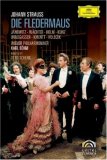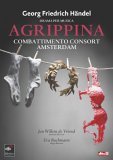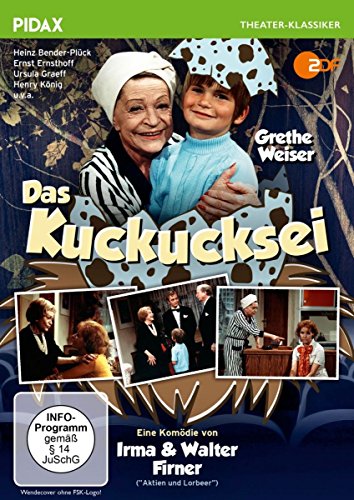![The Worst Person In The World [Blu-ray] [2022]](/pictures/1159108.jpg) The Worst Person In The World | Blu Ray | (20/06/2022)
from £7.99
| Saving you £N/A (N/A%)
| RRP
The Worst Person In The World | Blu Ray | (20/06/2022)
from £7.99
| Saving you £N/A (N/A%)
| RRP Acclaimed filmmaker Joachim Trier (Oslo, August 31st, Louder Than Bombs) returns with The Worst Person in the World, a wistful and subversive romantic drama about the quest for love and meaning. Set in contemporary Oslo, it features a star-making lead performance from Renate Reinsve as a young woman who, on the verge of turning thirty, navigates multiple love affairs, existential uncertainty and career dissatisfaction as she slowly starts deciding what she wants to do, who she wants to be, and ultimately who she wants to become. As much a formally playful character study as it is a poignant and perceptive observation of quarter-life angst, this life-affirming coming of age story deservedly won Reinsve the Best Actress award at the 2021 Cannes Film Festival.
![WWI Commemorative Film Collection [DVD]](/pictures/1127456.jpg) WWI Commemorative Film Collection | DVD | (19/05/2014)
from £15.97
| Saving you £84.02 (526.11%)
| RRP
WWI Commemorative Film Collection | DVD | (19/05/2014)
from £15.97
| Saving you £84.02 (526.11%)
| RRP ![The Oslo Trilogy: Three Films By Joachim Trier [Blu-ray]](/pictures/1159912.jpg) The Oslo Trilogy: Three Films By Joachim Trier | Blu Ray | (15/08/2022)
from £29.99
| Saving you £N/A (N/A%)
| RRP
The Oslo Trilogy: Three Films By Joachim Trier | Blu Ray | (15/08/2022)
from £29.99
| Saving you £N/A (N/A%)
| RRP Fifteen years after their first feature-length collaboration, Reprise, and 10 years after its follow-up, Oslo, August 31st, director Joachim Trier and his longtime co-writer Eskil Vogt turned their gaze back on the Norwegian capital city with The Worst Person In The World. Playful yet melancholy, intricately observed yet bracingly deft, and centering on three exhilarating performances from actor Anders Danielsen Lie, the films that comprise the newly christened Oslo Trilogy deliver lyrical, unflinching meditations on memory, self-knowledge, and the mutability of identity in today's Europe. Product Features Q&A with Renate Reinsve Behind the Scenes Gaupe Comic Gallery Exclusive 24-page booklet
![The Worst Person In The World [DVD] [2022]](/pictures/1159112.jpg) The Worst Person In The World | DVD | (20/06/2022)
from £17.98
| Saving you £N/A (N/A%)
| RRP
The Worst Person In The World | DVD | (20/06/2022)
from £17.98
| Saving you £N/A (N/A%)
| RRP Acclaimed filmmaker Joachim Trier (Oslo, August 31st, Louder Than Bombs) returns with The Worst Person in the World, a wistful and subversive romantic drama about the quest for love and meaning. Set in contemporary Oslo, it features a star-making lead performance from Renate Reinsve as a young woman who, on the verge of turning thirty, navigates multiple love affairs, existential uncertainty and career dissatisfaction as she slowly starts deciding what she wants to do, who she wants to be, and ultimately who she wants to become. As much a formally playful character study as it is a poignant and perceptive observation of quarter-life angst, this life-affirming coming of age story deservedly won Reinsve the Best Actress award at the 2021 Cannes Film Festival.
![Wwi Film Collection [DVD]](/pictures/1126862.jpg) Wwi Film Collection | DVD | (28/04/2014)
from £9.98
| Saving you £5.01 (50.20%)
| RRP
Wwi Film Collection | DVD | (28/04/2014)
from £9.98
| Saving you £5.01 (50.20%)
| RRP It has been 100 years since the start of the First World War. More than 10 million people lost their lives between 1914 and 1918, and twice as many were injured or crippled. The First World War was a significant theme for the film artists of the Deutsche Film-Aktiengesellschaft (DEFA), the East German film company founded in 1946. The suffering of working people, the misery of life in the factories and poor accommodation in cities, the growing organisation of resistance to warmongers and profiteers, as well as the battle for a better world are the topics of this extraordinary collection of films. THE KAISER S LACKEY: Submissiveness and petty bourgeois behaviour were part of the apparatus of oppression that kept the German Empire running and stabilised its hierarchy. Industrialist s son Diederich HeÃling, hero of this extraordinary film, is a cowardly and conventional career-opportunist. His path to power is that of the lickspittle he seeks the recognition of all above him, denounces competitors, and becomes the despot of both his inherited paper factory and his own family. Heinrich Mann s grand novel The Kaiser s Lackey, about a typical fellow traveller who uncritically idolises the Kaiser and shares his ambitions for world power was sympathetically filmed by director Wolfgang Staudte. A clever and amusing piece of cinema and a world success. THE GIRLS IN GINGHAM: The increase in industrialisation in the Germany of the early 20th century made the difference in poor and rich much more apparent. The life of simple people was hard. The focal point of The Girls in Gingham is Guste, who, as a maid, has to look after her lords and ladies. When the First World War breaks out, her husband is conscripted. Guste has to support the whole family by toiling as a hand-grenade maker. The young woman soon grasps that she is working for the continuation of this senseless war. She quits... The Girls in Gingham is a cinematographic journey through time and empire, through war, economic crisis, the rise of Nazi fascism and into a further, even crueller Second World War. It is a tense, moving and dramatic story.
![Oslo, August 31st [DVD]](/pictures/1113036.jpg) Oslo, August 31st | DVD | (26/03/2012)
from £N/A
| Saving you £N/A (N/A%)
| RRP
Oslo, August 31st | DVD | (26/03/2012)
from £N/A
| Saving you £N/A (N/A%)
| RRP Everybody deserves a second chance. Oslo, August 31st is a film about one man's past mistakes and his last chance for salvation.It's 30th August in a sun drenched Oslo. Recovering drug addict, Anders, is given the day's leave from his countryside rehab clinic to attend a job interview in the city centre. However, when Anders miserably fails the interview he becomes hellbent on confronting the people from his past. Worlds collide, hearts are broken, and the fate of Ander's life lie well in the balance. Only tomorrow will tell. From critically acclaimed director Joachim Trier, Oslo, August 31st.
 Johann Strauss - Die Fledermaus - Karl Bohm/Wiener Philharmoniker | DVD | (05/11/2007)
from £15.98
| Saving you £1.01 (6.32%)
| RRP
Johann Strauss - Die Fledermaus - Karl Bohm/Wiener Philharmoniker | DVD | (05/11/2007)
from £15.98
| Saving you £1.01 (6.32%)
| RRP This is Otto Schenk's quintessentially Viennese 1972 production of Strauss's masterpiece Die Fledermaus featuring a Viennese dream cast - Janowitz Wchter Windgassen Bhm and the Vienna Philharmonic. Tracklisting: 1. Overture 2. Nr.1 Introduktion: ""Tubchen das entflattert ist"" 3. ""Das ist er der Alfred!""/Nr. 1a ""Ach ich darf nicht hin zu dir"" 4. ""So ein Pillerl beruhigt enorm"" 5. Nr.2 Terzett: ""Nein mit solchen Advokaten"" 6. ""Also den sind wir los"" 7. Nr.3 Duett: ""Komm mit mir zum Souper"" 8. ""Was ist denn das?"" 9. Nr.4 Terzett: ""So muss allein ich bleiben"" 10. Na der wird sich fabelhaft im Arrest amsieren"" 11. Nr.5 Finale: ""Trinke Liebchen trinke schnell"" 12. ""Da kommt doch jemand?"" 13. ""Mein Herr was dchten Sie von mir"" 14. Mein schnes grosses Vogelhaus 15. Nr.6 Introduktion: ""Ein Souper heut uns winkt"" 16. ""Ida!"" - ""Adele!"" 17. Nr.7 Couplet: ""Ich lade gern mir Gste ein"" 18. ""Nasdrowje!"" 19. Nr.8 Ensemble und Couplet: ""Ach meine Herr'n und Damen"" 20. ""Mein Herr Marquis"" 21. ""Aber meine Herrschaften"" 22. Nr.9 Duett: ""Dieser Anstand so manierlich"" 23. ""Da ist sie ja die schne Unbekannte!"" 24. Nr.10 Csrds: ""Klnge der Heimat"" 25. ""Na bin ich eine echte Ungarin?"" 26. Nr.11 Finale: ""Im Feuerstrom der Reben"" 27. ""Herr Chevalier ich grsse Sie!"" 28. Brderlein und Schwesterlein 29. Polka ""Unter Donner und Blitz"" op.324 30. ""Genug damit genug"" 31. Dialog: Tubchen das entflattert ist 32. Nr. 13 ""Mongolen sagen immer"" 33. ""Was sagen Sie? - ""Sie besoffener Idiot!"" 34. Nr.14 Couplets: ""Spiel' ich die Unschuld vom Lande"" 35. ""Aber selbstverstndlich werd' ich Sie ausbilden lassen!"" 36. Nr.15 Terzett: ""Ich stehe voll Zagen"" 37. ""So du willst dich also rchen"" 38. Nr.16 Finale: ""O Fledermaus o Fledermaus""
 Handel - Agrippina (Combattimento Consort Amsterdam) | DVD | (17/07/2006)
from £16.25
| Saving you £N/A (N/A%)
| RRP
Handel - Agrippina (Combattimento Consort Amsterdam) | DVD | (17/07/2006)
from £16.25
| Saving you £N/A (N/A%)
| RRP The immediate success of Handel's early opera 'Agrippina' which was written in 1709 established the young composer's international reputation. It skilfully combines the vocal brilliance and musical vitality that we would expect from the future composer of Messiah with the engaging humour and involving drama that we find in Shakespeare. Composed for an Italian audience when the precocious Handel was still in his early twenties Agrippina gives us a fascinating musical portrayal of the human ambition greed scheming and romance of real historical characters form ancient Rome.
![The Hellion [DVD]](/pictures/1144377.jpg) The Hellion | DVD | (11/09/2017)
from £12.54
| Saving you £N/A (N/A%)
| RRP
The Hellion | DVD | (11/09/2017)
from £12.54
| Saving you £N/A (N/A%)
| RRP In one of the most intense and unnerving British horrors of recent years, three friends head to the sea for a drunken weekend away, only to be imprisoned on the top floor of their holiday apartment by a malevolent paranormal force. Unable to contact the outside world their sanity reaches breaking point and they begin to turn on each other.
![J.S. Bach: St. Matthew Passion (Amsterdam 2012) (Iván Fischer, Mark Padmore, Peter Harvey) (Arthaus: 108075) [Blu-ray] [2013]](/pictures/1133583.jpg) J.S. Bach: St. Matthew Passion (Amsterdam 2012) (Iván Fischer, Mark Padmore, Peter Harvey) (Arthaus: 108075) | Blu Ray | (11/03/2013)
from £29.95
| Saving you £0.04 (0.13%)
| RRP
J.S. Bach: St. Matthew Passion (Amsterdam 2012) (Iván Fischer, Mark Padmore, Peter Harvey) (Arthaus: 108075) | Blu Ray | (11/03/2013)
from £29.95
| Saving you £0.04 (0.13%)
| RRP ARTH 108075; ARTHAUS MUSIK - Germania; Classica vocale Sacra Messe
 Beethoven: Symphonies Nos. 7, 8 And 9 | DVD | (04/10/2004)
from £35.62
| Saving you £-12.63 (-54.90%)
| RRP
Beethoven: Symphonies Nos. 7, 8 And 9 | DVD | (04/10/2004)
from £35.62
| Saving you £-12.63 (-54.90%)
| RRP Michael Gielen conducts Beethoven's seventh eigth and ninth symphonies.
![Die Walkure [2003]](/pictures/1028263.jpg) Die Walkure | DVD | (01/12/2003)
from £25.00
| Saving you £4.99 (19.96%)
| RRP
Die Walkure | DVD | (01/12/2003)
from £25.00
| Saving you £4.99 (19.96%)
| RRP A performance of the Richard Wagner opera by the Stuttgart State Orchestra. Conducted by Lothar Zagrosek.
 Wagner: Der Ring Des Nibelungen (Lisa Gasteen/Robert Gambill/Stuttgart Opera/Lothar Zagrosek) | DVD | (27/09/2010)
from £83.68
| Saving you £-13.69 (N/A%)
| RRP
Wagner: Der Ring Des Nibelungen (Lisa Gasteen/Robert Gambill/Stuttgart Opera/Lothar Zagrosek) | DVD | (27/09/2010)
from £83.68
| Saving you £-13.69 (N/A%)
| RRP Wagner: Der Ring Des Nibelungen
![The Worst Person in the World (Criterion Collection) [Blu-ray]](/pictures/1160053.jpg) The Worst Person in the World (Criterion Collection) | Blu Ray | (28/06/2022)
from £N/A
| Saving you £N/A (N/A%)
| RRP
The Worst Person in the World (Criterion Collection) | Blu Ray | (28/06/2022)
from £N/A
| Saving you £N/A (N/A%)
| RRP  Das Kuckucksei | DVD | (12/05/2017)
from £N/A
| Saving you £N/A (N/A%)
| RRP
Das Kuckucksei | DVD | (12/05/2017)
from £N/A
| Saving you £N/A (N/A%)
| RRP 
Please wait. Loading...
This site uses cookies.
More details in our privacy policy